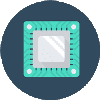Introduction:
In recent years, the rise of blockchain technology has paved the way for innovative organizational structures, with Decentralized Autonomous Organizations (DAOs) at the forefront of this revolution. DAOs represent a paradigm shift in governance, offering a novel approach to decision-making and resource allocation. In this blog post, we will explore the concept of governance within DAOs examining the benefits, challenges, and the potential impact on the future of organizational structures.
Understanding Decentralized Autonomous Organizations:
At its core, a Decentralized Autonomous Organization is an entity that operates without centralized control, utilizing smart contracts and blockchain technology to automate decision-making processes. DAOs are designed to be transparent, open, and governed by the consensus of their members, often represented as token holders.
Key Principles of DAO Governance:
Token-based Voting:
In DAOs voting power is typically proportional to the number of tokens held by an individual. This ensures that those who have a greater stake in the organization have more influence over its decisions. Token-based voting provides a direct and decentralized method for stakeholders to participate in the decision-making process.
Smart Contracts:
Smart contracts are self-executing contracts with the terms of the agreement directly written into code. In DAOs smart contracts are employed to automate various functions, such as fund allocation, voting mechanisms, and proposal execution. This not only enhances transparency but also reduces the risk of fraud and manipulation.
Proposal Mechanisms:DAOs often rely on proposal mechanisms where members can suggest and vote on initiatives. Proposals can range from funding development projects to changes in the organization's rules. The democratic nature of these proposals allows for a diverse range of ideas and initiatives to be considered.
Benefits of DAO Governance:
Transparency:
The use of blockchain technology ensures that all transactions and decisions within a DAO are recorded and transparent. This transparency fosters trust among members and enhances the credibility of the organization.
Inclusivity:
DAOs democratize decision-making by providing every member with the opportunity to participate. This inclusivity promotes a diverse range of perspectives and prevents concentration of power in the hands of a few.
Efficiency:
Through the automation of processes via smart contracts, DAOs can operate more efficiently than traditional organizations. This reduces the need for intermediaries and streamlines decision-making.
Challenges and Considerations:
Security Concerns:
The reliance on smart contracts introduces security challenges. Vulnerabilities in code could lead to exploitation by malicious actors, resulting in financial losses for the DAO.
Regulatory Uncertainty:
The decentralized nature of DAOs raises questions about their legal status. Regulatory bodies are still navigating the landscape, and DAOs must adapt to changing regulations.
Token Distribution Issues:Unequal token distribution can lead to a concentration of power, contradicting the principles of decentralization. Striking a balance in token distribution is crucial for maintaining fairness and preventing centralization.
Conclusion:
Decentralized Autonomous Organizations represent a fascinating frontier in organizational design. While challenges exist, the potential benefits of transparency, inclusivity, and efficiency are driving the continued exploration and development of DAOs. As technology evolves and regulatory frameworks adapt, DAOs may play an increasingly significant role in shaping the future of governance and organizational structures.





0 Comments